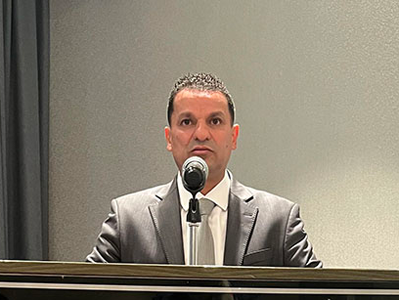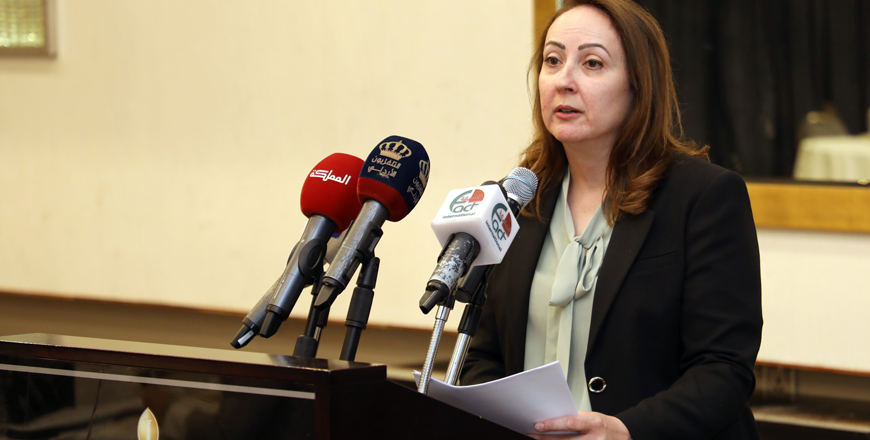You are here
NCHR, gov’t, CSOs prepare for Jordan’s 4th periodic human rights review
By Rana Husseini - Jul 23,2023 - Last updated at Jul 23,2023

Director of the Prime Ministry’s Human Rights Department Khalil Abdallat speaks during a consultation meeting in Amman on Sunday (Petra photo)
AMMAN — Director of the Prime Ministry’s Human Rights Department Khalil Abdallat on Sunday praised the role of the National Centre for Human Rights (NCHR) in the Universal Periodic Review (UPR) mechanism.
Abdallat spoke during a one-day consultation meeting with local organisations, the government and NCHR representatives to discuss preparations for Jordan’s Fourth Universal Periodic Review 2024, which will be presented in Geneva later this year.
“The NCHR has many tools that steadily empower its work towards safeguarding human rights in Jordan,” Abdallat said.
The Jordanian government, under the directives of His Majesty King Abdullah, is keen “to work on improving the state of human rights and guaranteeing more freedoms for its citizens”, he added.
Abdallat also praised the cooperation between the government, the NCHR and civil society organisations in preparing the 2016-2025 Comprehensive National Plan on Human Rights.
The plan is a comprehensive strategy that addresses civil, political, economic and cultural rights in addition to the rights of vulnerable groups, such as the elderly.
The plan contains primary and secondary goals, and achievement will be measured using a series of indicators.
The core of the project is based on the Jordanian Constitution and the Kingdom’s voluntary international commitments regarding human rights.
Abdallat told The Jordan Times that future consultations will be held with the Jordanian National Commission for Women, the Higher Council for the Rights of Persons with Disabilities, as well as broad meetings in various governorates.
Also addressing the gathering was NCHR chairman of the board of trustees, Samar Haj Hassan, who stated that the consultative meeting confirmed the importance of interaction between the government and the NCHR.
In Hassan’s words: “It constitutes a working nucleus for framing national efforts to enhance cooperation and participatory work in the human rights field.’’
The UPR, along with the Human Rights Council, was established by UN Resolution 60/251 in 2006. Under this mechanism, the human rights records of all UN member states will be reviewed once every four to five years, using the UN Charter, the Universal Declaration of Human Rights and other instruments as a foundation. The review also considers all voluntary pledges and commitments made by the state.
Related Articles
AMMAN — Director of the Prime Ministry’s Human Rights Department (HRD) Khalil Abdallat on Tuesday said the Kingdom is in the final pre
AMMAN — The Centre for Defending Freedoms of Journalists (CDFJ) on Monday held a meeting to discuss ways of promoting and evaluating Jordan’
AMMAN — Director of the Prime Ministry’s Human Rights Department Khalil Abdallat on Sunday stated that the Jordanian government is committed















